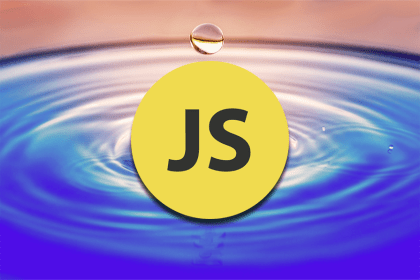Editor’s note: This article was last updated by Ukeje Goodness on 7 June 2024 to include the addition of the Revel full-stack Go framework.

Looking for the top Go frameworks for the web? You came to the right place. Go is a multiparadigm, statically typed, and compiled programming language designed by Google. It is similar to C, so if you’re a fan of C, Go will be an easy language to pick up.
Many developers have embraced Go because of its garbage collection, memory safety, and structural typing system. According to the 2023 Stack Overflow developer survey, Go is now considered the ninth most “admired” language on the site.
This article will explore the top six Go web frameworks, evaluating their features, advantages, and potential drawbacks, to determine which will best suit your project.
Before reviewing the top Go frameworks, let’s understand what Go is truly used for. Aside from building general web applications, the language’s scope encompasses a wide range of use cases:
Go web frameworks were created to ease Go web development processes without worrying about setups and focusing more on the functionalities of a project.
Using Go without a framework is possible — however, it is much more tedious and developers must constantly rewrite code. This is where the web frameworks come in.
With frameworks, for example, instead of writing a wrapper around a database connection in every new project, developers can just pick a favorite framework and focus more on the business logic.
Now, let’s review a few of the features that make Go so popular.
Static typing provides better performance at runtime because it’s mostly used to build high-performance applications that are highly optimized at compile times.
Static typing also finds hidden problems like type errors. For example, if I were creating an integer variable, the compiler would recognize its type as integer and only accept integer values. This makes it easier to manage code for larger projects.
Many developers have created production-ready packages on top of standard Go packages. These packages often become the standard libraries for specific features. For example, Gorilla Mux was created for routing by the community because the initial Go router is quite limited.
All Go-related packages are available on GitHub, including MongoDB, Redis, and MySQL.
The development time for these Go frameworks is fast and simple. Packages are already available and can be imported easily, eliminating the need to write redundant code.
Go’s goroutines provide language-level support for concurrency, lightweight threads, strict rules for avoiding mutation to disallow race conditions, and overall simplicity.
Compared to languages like Java, JavaScript, etc., Go has a relatively young ecosystem, so you may have fewer libraries to work with, or you may need to implement some functionalities from scratch depending on what you’re building.
Go’s minimalistic design philosophy may seem limiting if you’re used to other languages. The missing features may be complementary to your project, and Go’s standard library is limited, so you might have to rely on third-party packages for functionalities that are readily available in other languages.
In the following sections, we’ll explore the top six Go frameworks to see what they each offer.
Gin is an HTTP web framework written in Go that is very popular, with over 75k stars on GitHub at the time of writing. Currently, Gin is the most popular framework for building microservices because it offers a simple way to build a request-handling pipeline where you can plug in middleware.
Gin also boasts a Martini-like API and, according to Gin’s GitHub page, is 40x faster because of httprouter. Below are some of its amazing features.
Gin offers convenient error management. This means that when encountering any errors during an HTTP request, Gin documents the errors as they occur:
c.AbortWithStatusJSON(400, gin.H{
"error": "Blah blahhh"
})
// continue
c.JSON(200, gin.H{
"msg": "ok"
})
Gin also makes it incredibly easy to create middleware, which can be plugged into the request pipeline by creating a router with r := gin.New() and adding a logger middleware with r.Use(gin.Logger()).
You can also use a recovery middleware with r.Use(gin.Recovery()).
Gin’s performance is thanks to its route grouping and small memory. Gin’s grouping ability for routes lets routes in Gin nest infinitely without affecting performance.
Its fast performance is also thanks to its small memory, which Gin uses or references while running. The more memory usage the server consumes, the slower it gets. And because Gin has a low memory footprint, it provides faster performance.
Finally, Gin provides support for JSON validation. Using JSON to send requests can validate required values, like input data from the client. These values must be validated before saving in memory, so by validating them, developers can avoid saving inaccurate values.
Gin is a simple, easy-to-use framework that, if you are just starting to use Golang, has been voted the ideal framework because it is minimal and straightforward to use.
Check out this quickstart Gin tutorial for more information.
Beego is another Go web framework that is mostly used to build enterprise web applications with rapid development.
Beego has four main parts that make it a viable Go framework:
log, config, and governorBelow are some of the features that Beego offers.
Because Beego focuses on enterprise applications, which tend to be very large with a lot of code powering many features, a modular structure arranges modules for specific use cases, optimizing performance.
The modular structure of the Beego framework supports features like a configuration module, logging module, and caching module.
Beego also uses a regular MVC architecture to handle specific development aspects in an app, which is also beneficial for enterprise applications.
Beego also supports namespace routing, which defines where the Controller is located for a Route. Here is an example:
func init() {
ns :=
beego.NewNamespace("/v1",
beego.NSRouter("/auth", &controllers.AuthController{}),
beego.NSRouter("/scheduler/task",&controllers.TaskController{}),
)
beego.AddNamespace(ns)
}
Beego’s automated API documentation through Swagger provides developers with the automation they need to create API documentation without wasting time manually creating it.
Route annotation lets developers define any component for a route target for a given URL. This means routes do not need to be registered in the route file again; only the controller should use Include.
With the following route annotation, Beego parses and turns them into routes automatically:
// Weather API
type WeatherController struct {
web.Controller
}
func (c *WeatherController) URLMapping() {
c.Mapping("StaticBlock", c.StaticBlock)
c.Mapping("AllBlock", c.AllBlock)
}
// @router /staticblock/:key [get]
func (this *WeatherController) StaticBlock() {
}
// @router /all/:key [get]
func (this *WeatherController) AllBlock() {
}
Then, register the Controller:
web.Include(&WeatherController{})
Iris is an Express.js-equivalent web framework that is easier to use for people coming from the Node.js community.
Iris comes with Sessions, API versioning, WebSocket, dependency injection, WebAssembly, the typical MVC architecture, and more, making it very flexible with third-party libraries.
With over 25k stars on GitHub, Iris is most loved because of its simplicity and its ability to extend the framework with personal libraries quickly.
As discussed, one of Iris’s main features is that it is fully accordant and flexible with external libraries, letting users pick and choose what they want to use with the framework.
With a built-in logger for printing and logging server requests, users don’t need to use something external, cutting down the complexity of using Iris.
Like Beego, Iris provides MVC support for larger applications and its automated API versioning makes adding new integrations convenient by placing them in newer versions of the route.
Iris’s smart and fast compression provides faster performance, and testing is a breeze with the Ngrok integration, which lets developers share a local web server with other developers for testing.
One great thing about this specific framework is that the author replies to issues on GitHub quickly, making it helpful when running into bugs.
Echo is another promising framework created by Labstack with nearly 30k stars on GitHub. Echo is also regarded as a micro framework, which is more of a standard library and a router, and has fully-baked documentation for developers to follow.
This framework is great for people who want to learn how to create APIs from scratch, thanks to its extensive documentation.
Echo lets developers define their own middleware and also has built-in middleware to use. This gives developers the ability to create custom middleware to get specific functionalities while having the built-in middleware speed up production.
Echo also supports HTTP/2 for faster performance and an overall better user experience. Its API also supports a variety of HTTP responses like JSON, XML, stream, blob, file, attachment, inline, and customized central HTTP error handling.
Finally, Echo supports a variety of templating engines, providing the flexibility and convenience developers need when choosing an engine.
Fiber is another Express.js-like web framework written in Go that boasts low memory usage and rich routing. Built on top of the fasthttp HTTP engine for Go, which is the fastest HTTP engine for Go, Fiber is one of the fastest Go frameworks.
Created with the main focus of minimalism and the Unix philosophy to provide simple and modular software technology, the idea for Fiber was to allow new Go developers to begin creating web applications quickly.
Fiber boasts a built-in rate limiter that helps reduce traffic to a particular endpoint. This is helpful if, for example, a user tries to sign in to an account continuously and knows that it might be malicious activity.
Its static files, like style sheets, scripts, and images, can be handled and served from the server, making them easily cached, and consuming less memory — and the content remains static upon every request.
Fiber’s support for WebSocket bidirectional TCP connections is useful for creating real-time communications, like a chat system.
Like the other Go frameworks we’ve mentioned in this post, Fiber has versatile middleware support, supports a variety of template engines, has low memory usage and footprint, and provides great documentation that is easy for new users to follow
The final Go web framework on our list is Revel, a full-stack framework for building frontend and backend apps. Designed to simplify the building process, Revel provides an extensive set of features that are easy to adopt.
This framework was inspired by Rails and Play, and its builders aim to offer a full-stack solution that supports rapid development cycles through convention over configuration and minimal setup requirements.
.html or .go files to speed up your development processAfter reading this, choosing one from six of these frameworks may be overwhelming, so here’s a table that places the features and aspects of these frameworks side by side to help you make data-driven decisions:
| Feature/Framework | Gin | Beego | Iris | Echo | Fiber | Revel |
|---|---|---|---|---|---|---|
| Performance | High, up to 40x faster than Martini | Moderate, focused on rapid development | Fast, simple, lightweight | High, performance-centric | Very high, built on fasthttp | Moderate, focused on rapid full-stack development |
| Ease of use | Easy, inspired by Django | Easy for core Go developers | As simple as Express.js | Minimalist, extensible | Designed for fast development | Self-sufficient, no setup required |
| Community support | Large (61.9k stars, 79.6k usage) | Moderate (28.7k stars, 120 usages) | Growing (25k stars, 3.6k usages) | Growing (23.1k stars, 9.1k usage) | Emerging (21.7k stars, 2.4k usage) | Emerging (13.1k Stars, 433 usage) |
| Specific features | Modular, scalable, Martini-like API | RESTful, MVC model, automated deployment | Sessions, API versioning, MVC architecture | Data binding, automatic TLS, templating | Low memory usage, WebSocket support | Pre-configured features, third-party plugin support |
In this article, we explored six popular Go web frameworks that offer a variety of features and philosophies. This list isn’t definitive — your ideal framework might not even be on the list, but that shouldn’t stop you from choosing the right framework for your project.
Many of these frameworks share similar features and are inspired by others, but each has unique aspects that are suitable for different development challenges. I hope this helps you pick the right framework for your next Go project.
Install LogRocket via npm or script tag. LogRocket.init() must be called client-side, not
server-side
$ npm i --save logrocket
// Code:
import LogRocket from 'logrocket';
LogRocket.init('app/id');
// Add to your HTML:
<script src="https://cdn.lr-ingest.com/LogRocket.min.js"></script>
<script>window.LogRocket && window.LogRocket.init('app/id');</script>
Would you be interested in joining LogRocket's developer community?
Join LogRocket’s Content Advisory Board. You’ll help inform the type of content we create and get access to exclusive meetups, social accreditation, and swag.
Sign up now
docker exec to interact with running containersRead up on how to interact with running containers using the docker exec command, and discover the difference between exec and attach.

filter() method in JavaScriptLearn about the array filter() method, from its basic syntax and use cases to more advanced techniques like chaining with map() and reduce().

CSS has come a long way, making vertical alignment easier than ever. Learn about this concept and explore some of the best CSS vertical alignment techniques.

Use Flutter to build browser-based app demos that help clients visualize the product, speed up buy-in, and close deals faster.
5 Replies to "The 6 top Go web frameworks"
So, I’ve just reading some bunch of articles about Go web frameworks, just to make sure I’m keeping up with today’s Go news. I, personally, like to glue things myself with bunch of libraries and won’t use any web frameworks in near future, this is just for reference in case somebody I know want to jump in to wagon and Go! (pun intended).
This article is good for starting point, but there’s something wrong on this article in my opinion. Please correct me if I’m wrong here, feel free to do so. I’m just pointing some sections that I think it’s not right, either it’s useful or not, so other beginner knows the stuffs and don’t fall further.
First, you mention that Gin has low memory footprint, and it means that Gin has fast performance. This is incorrect ways of thinking. Sure, Gin is fast, but low memory doesn’t equal fast performance. If you’re using bunch of caching correctly, it might have high memory footprint, but it does faster (mind the correctness usage of caching). So my point here is, low memory doesn’t mean fast performance.
On Gin’s JSON validation section, instead of using “These values must be validated before saving in memory”, you can use “These values must be validated before used on business logic”. The unvalidated raw JSON request is already in memory.
You mention on Beego section that modular structure optimizes performance, that is incorrect. Project structure doesn’t determine performance, and sometimes if you build modular structure incorrectly, you’ll get slower performance. But if performance that you mean is development performance, then I believe modular structure helps on that too.
I never wanted to label myself as ‘expert’ on anything, in fact I’m not, so take this comment with grain of salt. I think I’m missing other points but my limited knowledge hinders me from those points. Feel free to correct me if I’m wrong, as I’m here to learn too.
Oh, and lastly, please AVOID Iris as much as possible, treat it and the owner like a plague. Stealing other codes without credit, deleting issues and comments, self claiming that it’s the best of the best, and many more. Not a healthy open source project, thus it’s better to stay away from that. There are bunch of other good frameworks beside Iris, this article mention 4 of them, so there’s no point on investing on Iris. You won’t see Iris mentioned on other popular projects too, because they’re already know. If you don’t believe me, try search Iris history on search engines with “iris golang drama” as the keyword, and you will know how worse that project is.
Thanks for reading, and have a good day!
Hi there, I have a few disagreements to your points.
First, you disagreed on low memory footprint yielding to a fast performance which is true, definitely. As you know, an OS relies a lot on the RAM for a smooth running of tasks. So, for Gin to have low memory usage says a lot to how fast it can be. According to the article, “low memory footprint” not low memory.
Secondly, validated data isn’t saved in memory unless being made so by the business logic. The “memory” here is the database. Data coming in is validated and then saved into the memory which is already obvious. You are clearly saying the same thing. Besides, invalidated isn’t already in any memory, what happens when the server is restarted before it reaches the database?
Also, on Beego’s performance, yes, it’s development performance.
Lastly, Iris has been acquired by a Dubai startup if you know that? Also, development is done by the community which has lot of support. Your claim is backed to 2017/2018 and we can not continue to tarnish the image of Iris. It’s currently being used by a thousand developers. If you have proof to these claims I wouldn’t mind listening.
Thank you.
Link to Beego is broken.
Thanks for flagging that. We’ve updated the post.
As a constructive criticism, this article does not convey the actual useful up and downs a developer would experience using these frameworks. It is a collection of bullet point of features they own have claimed.